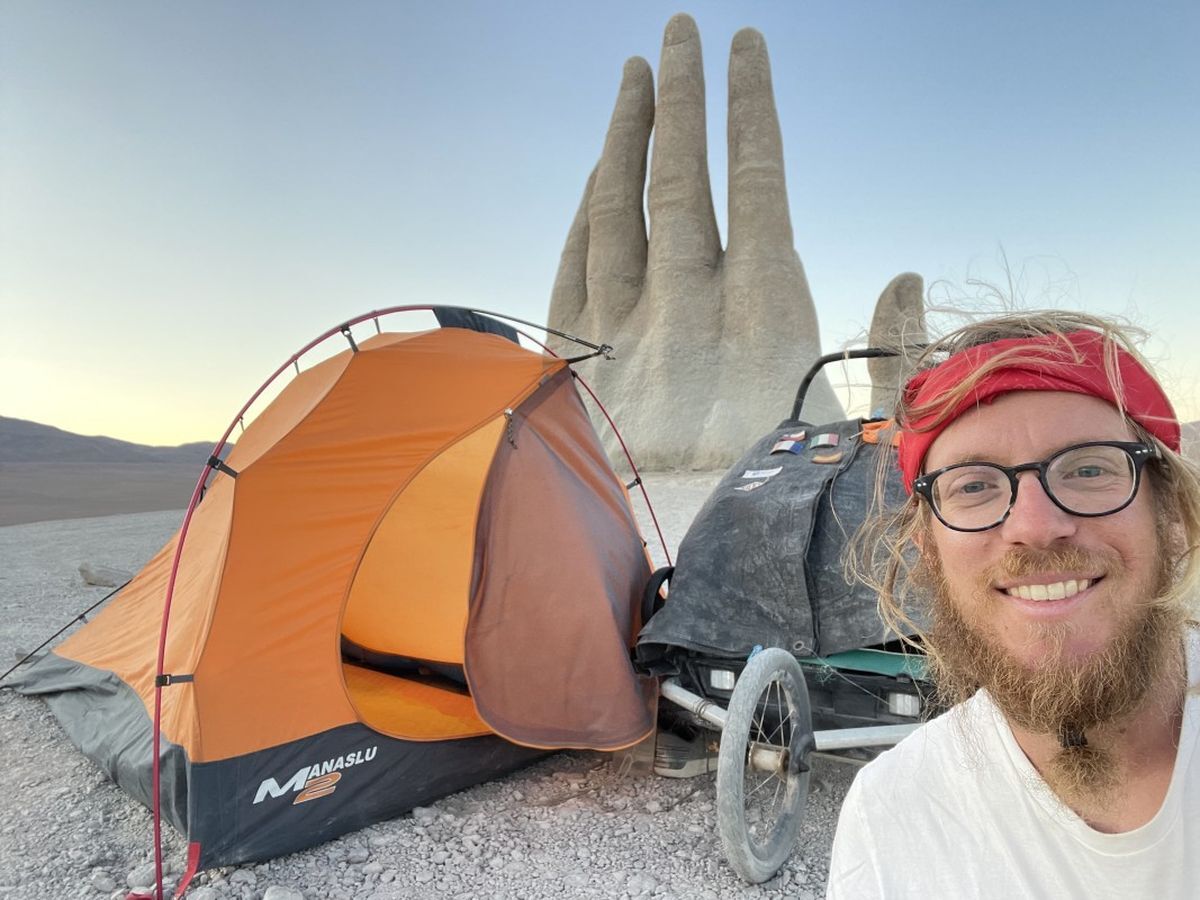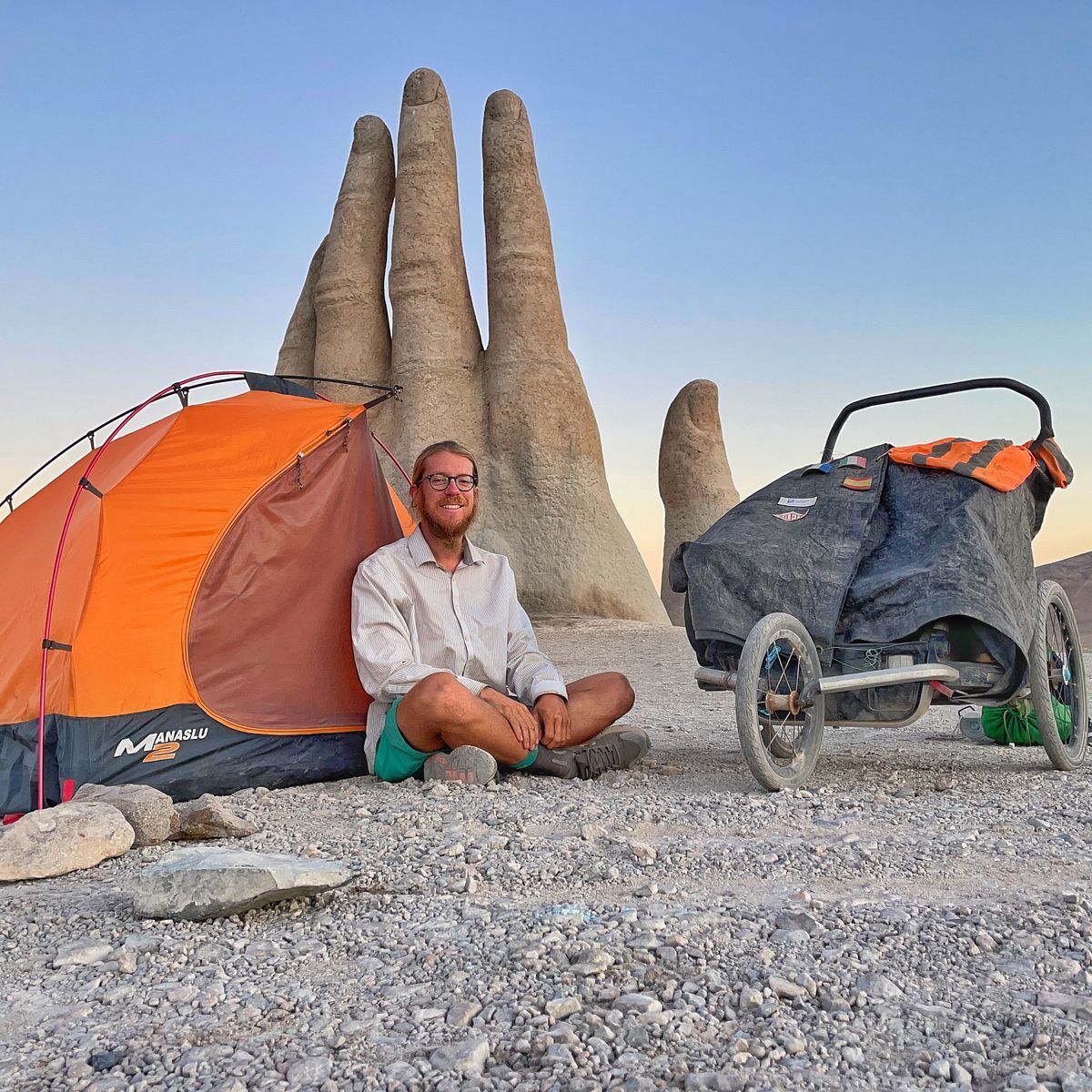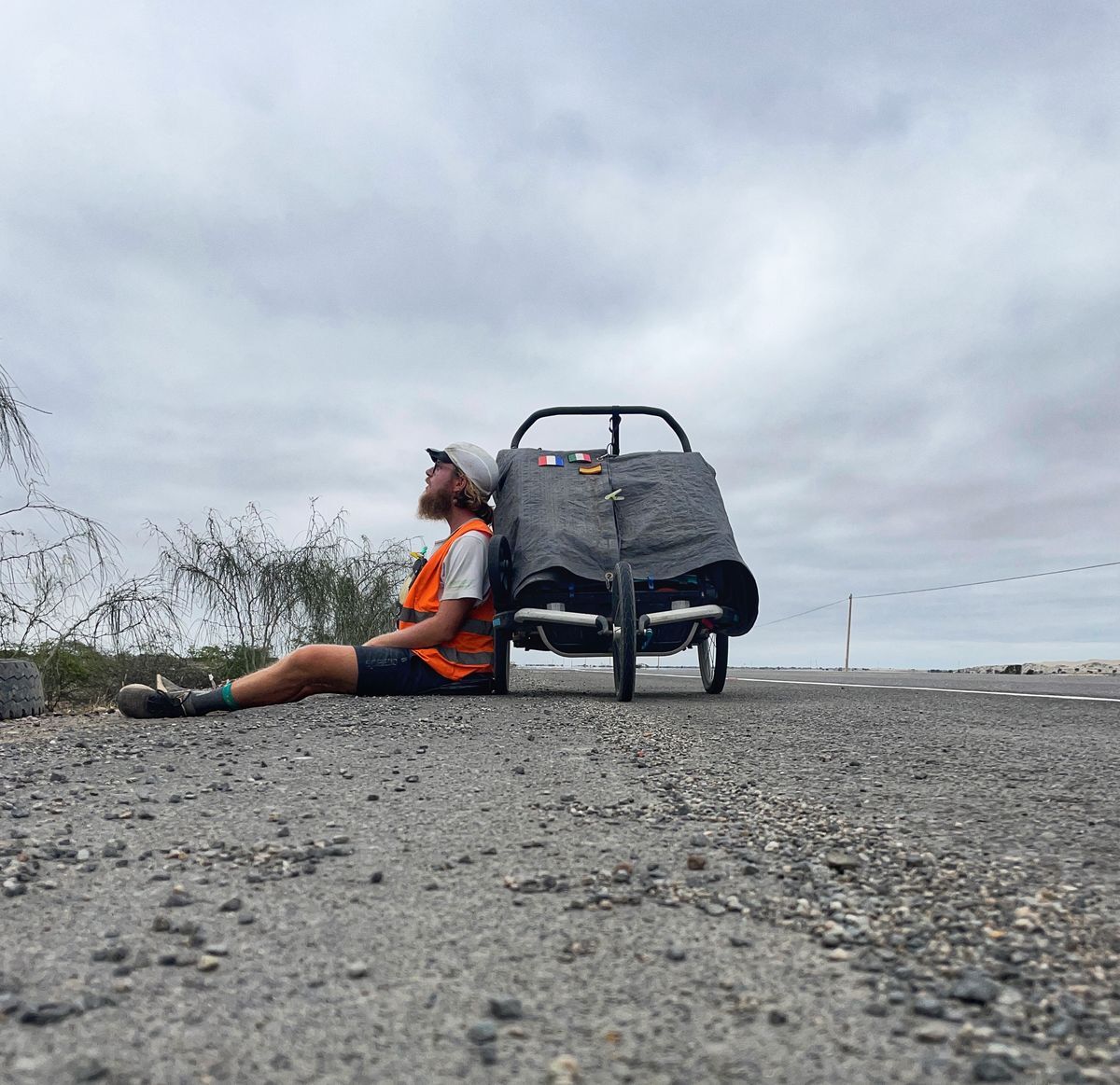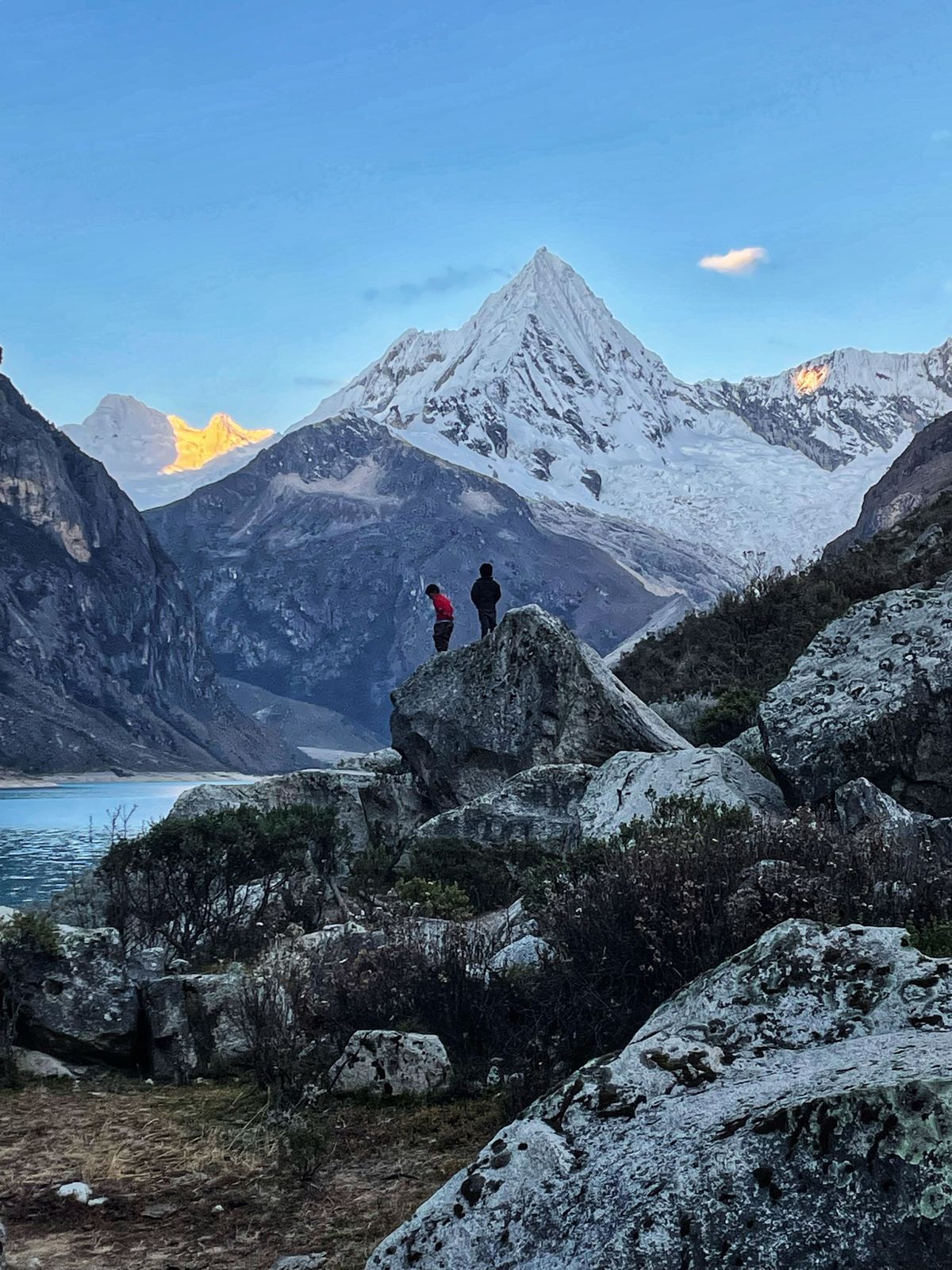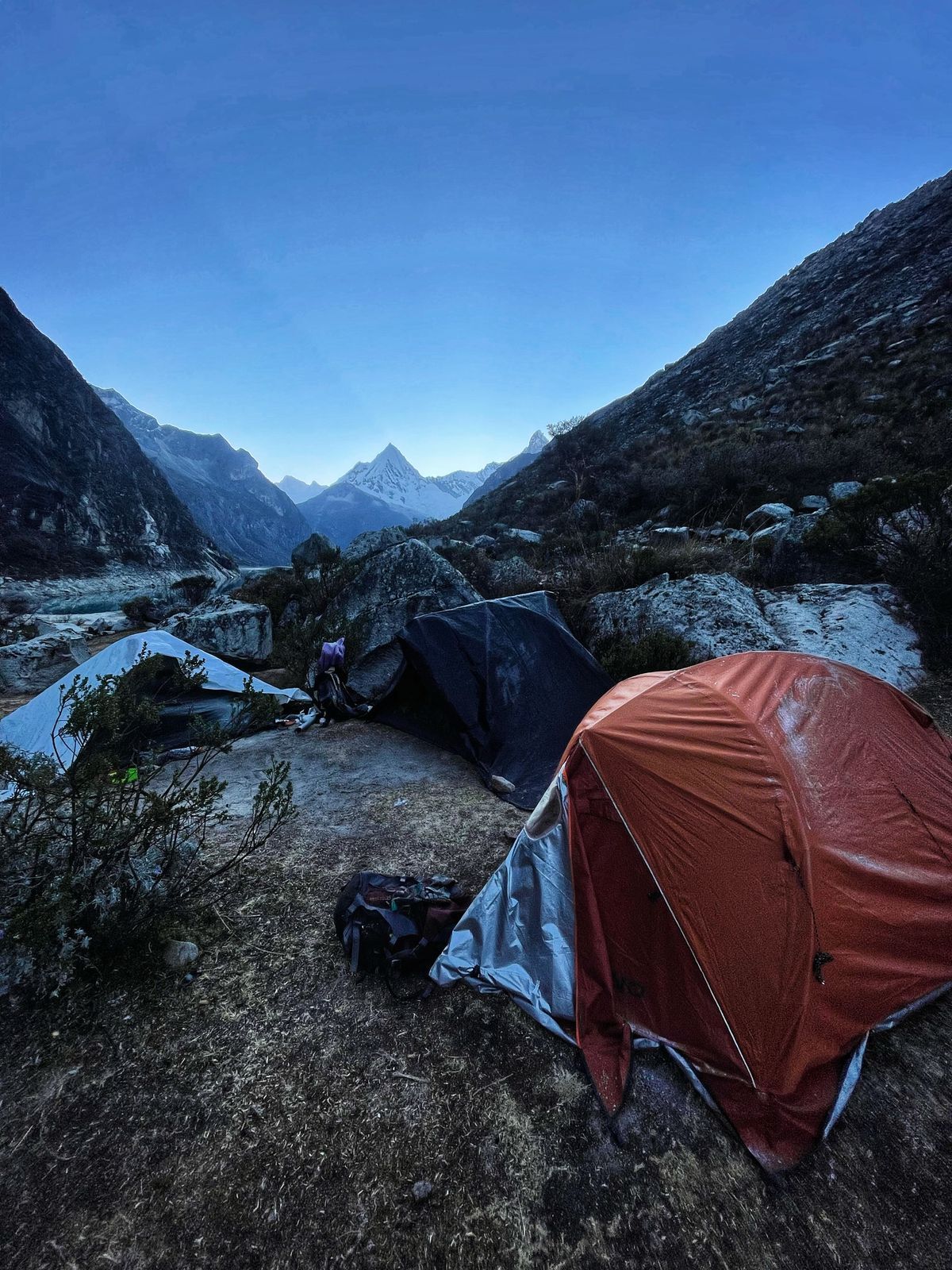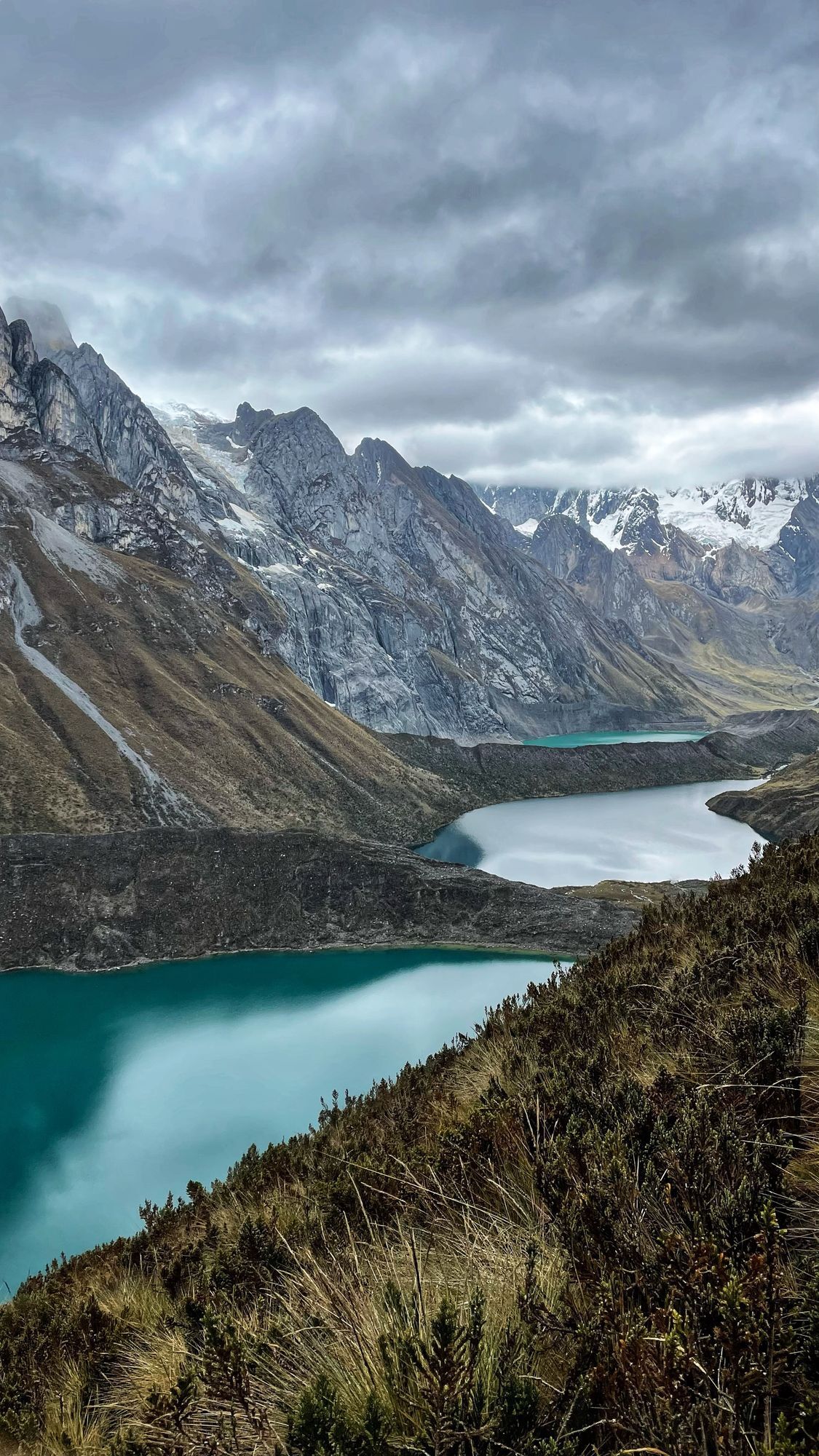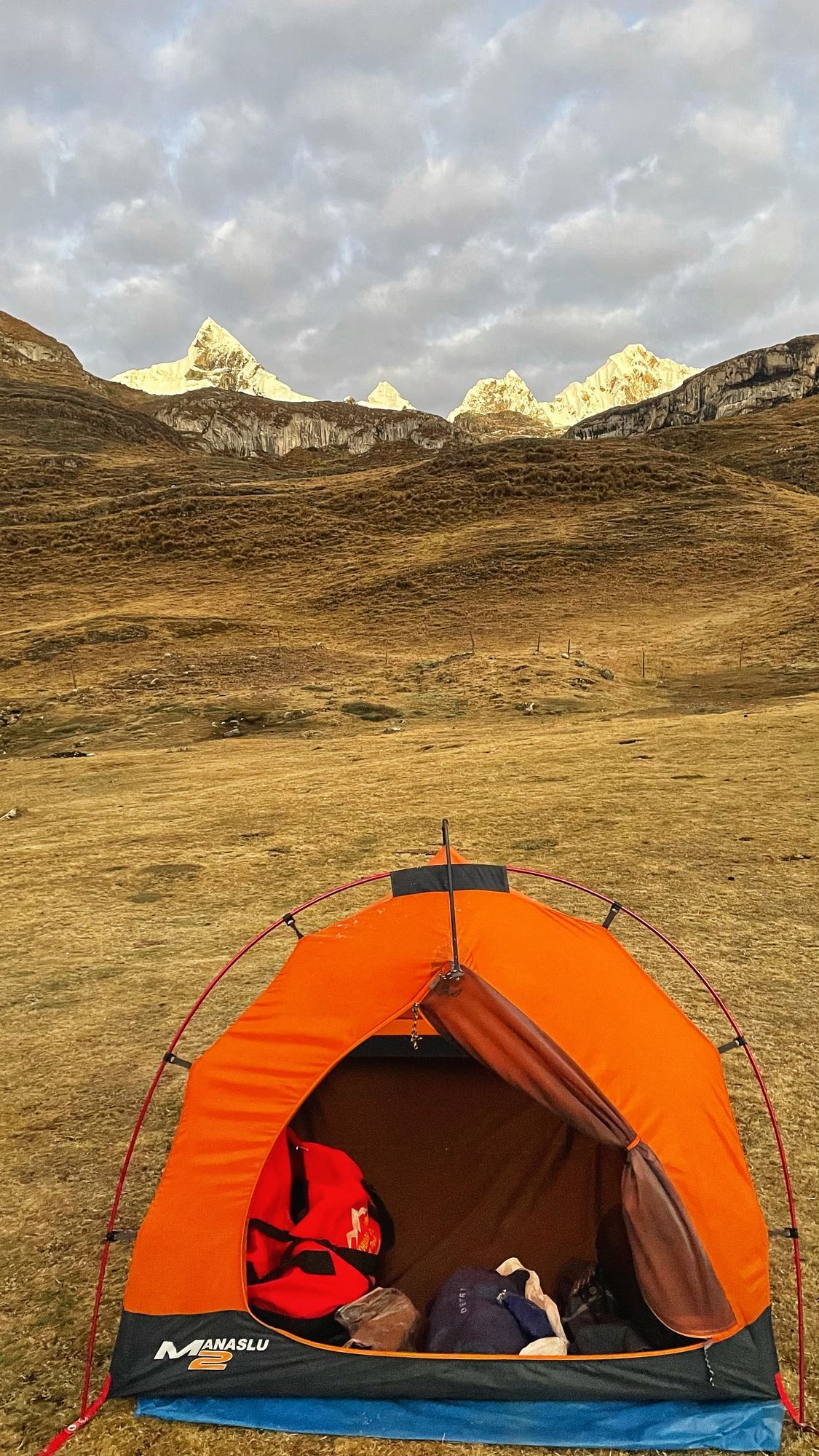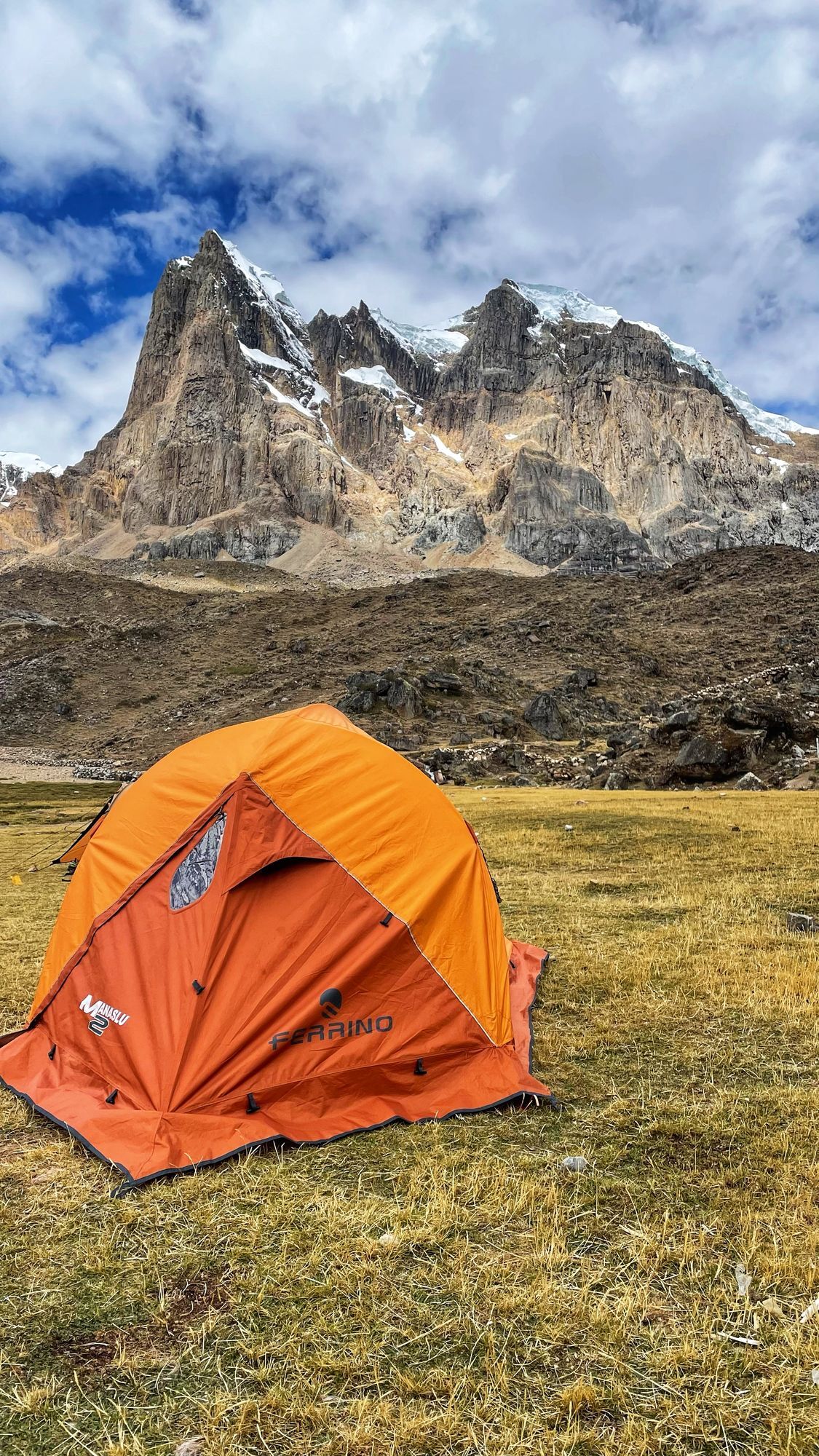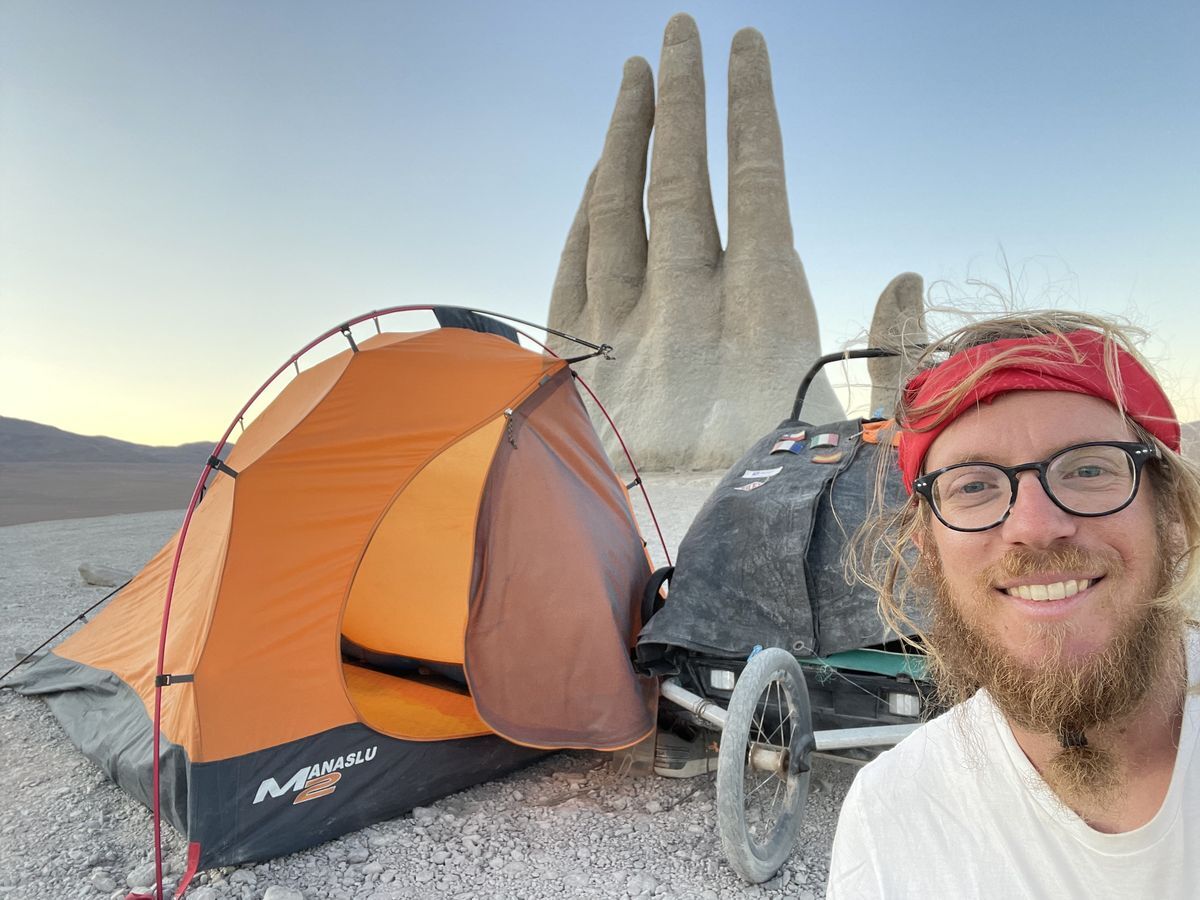
His name is Nicolò Guarrera, but he is making himself known as Pieroad. Veneto, born in 1993, he has been walking for some time now. Shortly after the first lockdown he left, heading west. He had with him a few clothes, a cell phone, a trolley with the essentials for life and a smile open to the world.
Pieroad grinds out kilometers at a slow pace, he aims to travel the world on foot, savoring its humanity and perhaps finding some answers to the elusiveness of life. We at Ferrino have welcomed him into our team by choosing to support Pieroad on this long journey. To date he has traveled over ten thousand kilometers and is in South America. The journey is still long, but slowly it is being completed, encounter after encounter, step after step.
Hi Nicolò, let's start with you. Veneto, born in 1993, then?
My life has been a constant change, so now I have chosen to be a pilgrim for a longer period. I have decided not to travel, but to live a part of my life walking, as a nomad. I am chasing some questions, not so much to give them an answer. I am looking for that frame of mind that involves their search because, although tormented, it is the one in which I find the most meaning.
Complex questions if it takes “a world tour on foot” to delve into their essence…
Walking is my act of freedom. I feel the need to get closer to an essential dimension of life, and walking is the most human way to do it. It is the only totally human way to move. Walking means living the path slowly, opening up to contamination because you pay more attention to details and change. You become curious, therefore you become attached, this is a great way to become interested in the facts of life.
And then, can you imagine the satisfaction of having managed to do it all on foot? It is a slow, stubborn and tiring construction of meaning that I nourish every day. I feel its importance and value inside, not its price.
You left shortly after the first lockdown… a difficult choice or a sense of freedom?
I would say it was a long-considered choice. I had already decided before the Covid-19 pandemic broke out. Two weeks before, I had left my job and had identified May 3rd as the departure date. The pandemic then complicated things.
When the situation improved in the summer, I thought about what to do. I even thought about going back to work and postponing the project for a year, then I decided to take the risk and left on August 9th.
Why take the risk?
Slowness is one of the pursuits of this journey. If a second wave had arrived and caught me with a lockdown, I would have stopped, I would have waited, and in the meantime I would have tried to experience the place where I had ended up and the stories it had to tell. It was worth the risk. Furthermore, my head was already set on that type of life, I was projected towards long walks and changes of scenery. Postponing by opening a parenthesis for a year would have required a mental effort that I had no intention of making.
How did you build your path?
At first I thought of heading east, towards the Balkans and Turkey. However, the leap seemed too big, both in cultural and bureaucratic terms. Going west instead meant starting to gradually extend the comfort zone, spending the first three months between Italy, France and Spain. Countries “close” to us in every sense and easily accessible. I could follow the network of Caminos de Santiago and count on the reception facilities along the way and on the company, which I hoped I would meet. Furthermore, I did not have to do any type of visa, which meant that if a second lockdown came, I could stop without fear of deadlines. It was like choosing to travel towards the known, to slowly approach the unknown.
You've planned a 4 year trip, do you ever feel alone imagining yourself away for that long?
I never feel lonely, because being alone means feeling like a stranger to a context. The challenge is to feel comfortable in ever-new situations. Instead, I feel nostalgia. Nostalgia that I use to write and to give even more value to what I left at home, to what I sacrificed to realize my dream.
What do you mean by “sacrificed”?
For me it has a precise value, it means making sacred. The bonds I have have become sacred to me, even more so by physically distancing myself from the people with whom I keep them alive. When I return I will reap the fruits of this sacrifice and friendships and family ties will have an even greater value than when I left.
Speaking of relationships, how did your relatives and friends take your decision?
Friends with serenity: some expected something like this, others were present during the period in which I was incubating the idea so they were prepared. Everyone was curious to know the details.
In my family it was obviously different, but my parents are truly uncommonly wise and after asking me for a few days to think about it they said that it was fine for them and in fact, they would have liked to be part of this project. They asked that we talk regularly, where possible, and that I take out normal health insurance. And then they told me: we are worried, we are your parents and even if you are an adult we still feel responsible for you; but if you are happy, we are with you.
To build your experience, did you compare yourself with other travellers who had experienced similar emotions?
I studied quite a bit, starting with those who had done it before me. A handful of people had succeeded (less than those who went to the moon, to be honest!). I read the books they wrote, their websites/blogs and collected information about their routes. Then I looked for those who had traveled to those places, even by other means, and I contacted them via social media to gather more ideas. The goal was twofold: to know in depth where I would pass through and to create a network of contacts on which I could rely.
What about logistics?
I worked on the tracks, on the itineraries, putting in what I wanted to see and aligning the points according to a path that made sense. In this phase I studied altimetries, distances between inhabited centers, which visas I would need, where the social tensions were dangerous and above all the seasons: I didn't want to go to Southeast Asia with the monsoons or cross the Australian outback in the middle of summer. One step at a time the path took shape and after several months I "returned home", drawing the last tracks from the Slovenian border to my city. It had a strange effect on me, I think that when it actually happens it will be very intense.
Traveling brings with it good and bad moments, have you ever experienced moments of great worry?
There is a common thread that unites all the countries I have been to: the painful attention of the population towards the environment. From Italy to Peru, with some differences but no one excluded. I will not dwell on specific observations or the consequences that we all know. Diversity is a figure of beauty and the diversity of life forms on earth is one of the most beautiful things that is disappearing most quickly and for which there is no hope of recovery. Every time I see it I experience a moment of disarming ugliness because I realize that we are losing this beauty due to laziness: no one wants to give up, indeed, sacrifice some comforts to give their contribution.
The most beautiful one instead?
A moment of hospitality. I was in Ecuador for the first night and I was in the pueblo of Tumbaco, on the outskirts of Quito. I was headed there because a boy was going to host me. That night it was raining and I kept wandering the streets looking for David's house, the boy who was going to offer me a bed. I didn't have the local SIM card yet, so I couldn't even ask for information. Then, I managed to find the gate. I rang, but there was no answer. The gate was open, so I went in. There was no one inside either. I entered the house, everything was off. I looked around, until I found a note on the table: "Hi Nico, sorry but I was held up by work, unfortunately I won't be able to be there when you arrive. I left the door open for you, make yourself at home. Shower and bed are at your disposal, the pantry is above the kitchen. Rest, see you one of these days in Quito!"
That night I slept like a baby, I don't think there's anything else to add.
We'll let you get back to your journey, but first tell us the most beautiful place you've walked so far...
Pato Canyon and Atacama Desert. But I'll tell you about the first one, because the Atacama is already known. The Rio Santa has carved out this canyon that winds from Caraz, a pueblo in the Peruvian Andes, to the coast. The landscape, needless to say, is stunning. Imposing rocky massifs stand proudly above the river, with steep walls that are colored red, gold, black, white and gray depending on the minerals trapped there millions of years ago. The watercourse makes a gentle noise and widens into small clearings, the vegetation is rich along its sinuous banks and offers shelter from the heat of the sun. There are inhabited centers, more than villages: sparse groups of houses where I can get water. I remember that on the third day, in the morning, I couldn't go on. I stopped at the edge of the road laughing to myself at how beautiful the landscape was. There were mango trees around white waterfalls and the views that opened up around every bend were a majestic sight. I even wrote down the kilometer number where I saw the most beautiful view, but that's a secret.

